Kiri Pritchard-Mclean and Rachel Fairburn talk serial killers
- Published
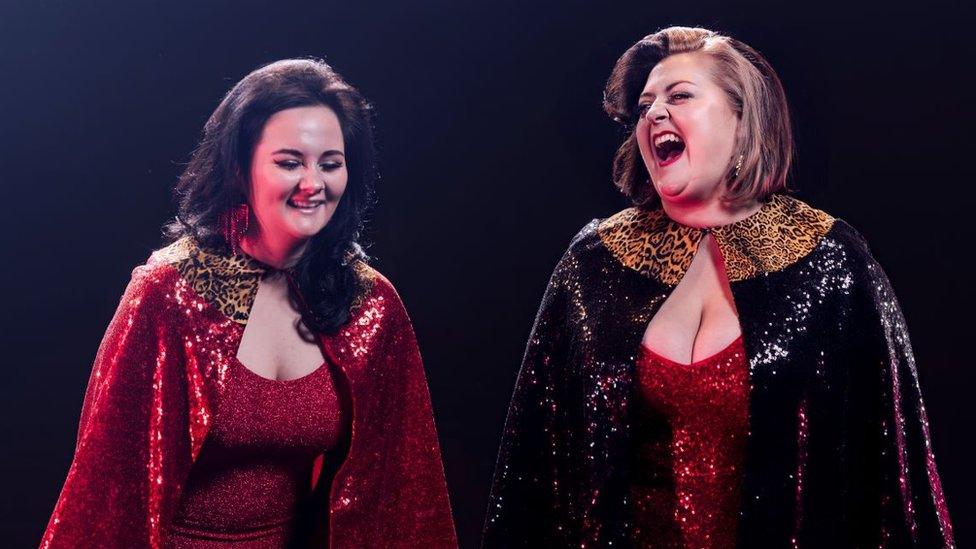
Rachel Fairburn (left) and Kiri Pritchard-McLean (right) have been working together for a decade
Comedians Kiri Pritchard-McLean and Rachel Fairburn grew up interested in all things strange and macabre.
As a child in Manchester, the faces of Moors murderers Myra Hindley and Ian Brady seemed to be constantly on the front of Fairburn's local paper.
More than 100 miles away on a farm on the island of Anglesey, a young Pritchard-McLean was "obsessed with spooky stories and horror" and terrified by her favourite book The Hound Of The Baskervilles by Arthur Conan Doyle.
"When you're a kid you think monsters are real and then you see it in the news and think 'maybe they are'," said Pritchard-McLean.
Back in 2013, both women were living in Manchester and working its comedy clubs but had never crossed paths.
"There was only ever one woman on a bill... the 'chick spot' they used to call it," said Pritchard-McLean.
"You'd only do a gig with other women if you were raising money for a violence charity or breast cancer," she joked.
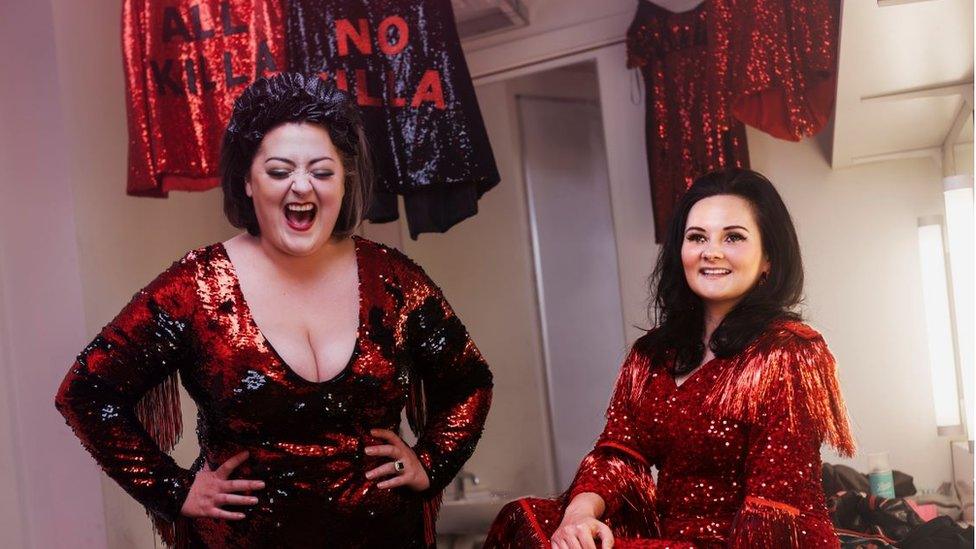
Kiri Pritchard-Mclean (left) and Rachel Fairburn (right) began recording All Killa No Filla in a back bedroom in 2013
But they kept hearing one another's name.
"People would say, 'oh, you two would get on', which is the worst thing anyone can say to me, because I immediately go 'I will not get on with that person now'," laughed Fairburn.
It turns out people were right and within months of eventually meeting they began working together on their podcast All Killa No Filla, in Fairburn's back bedroom.
It has now been going for 10 years and is up to its 104th episode having covered everyone from Jack the Ripper to Charles Manson.
With comedy and serial killers not the most obvious of bedfellows each episode starts with the disclaimer: "This isn't hero worship. We do this podcast because we have a mutual interest in serial killers and as long as we are doing this podcast it stops us from writing to them in prison."
The part about writing to serial killers is a joke they insist but they are completely serious about it not romanticising killers.
"If you have come here to talk about how clever Ted Bundy is this is not the podcast for you," said Pritchard-McLean.
"Initially people were like 'oh, that's a bit weird, isn't it' and then with a massive boom in true crime fewer and fewer people were making that comment.
"I think we've both got a good radar or what's appropriate and what's not."
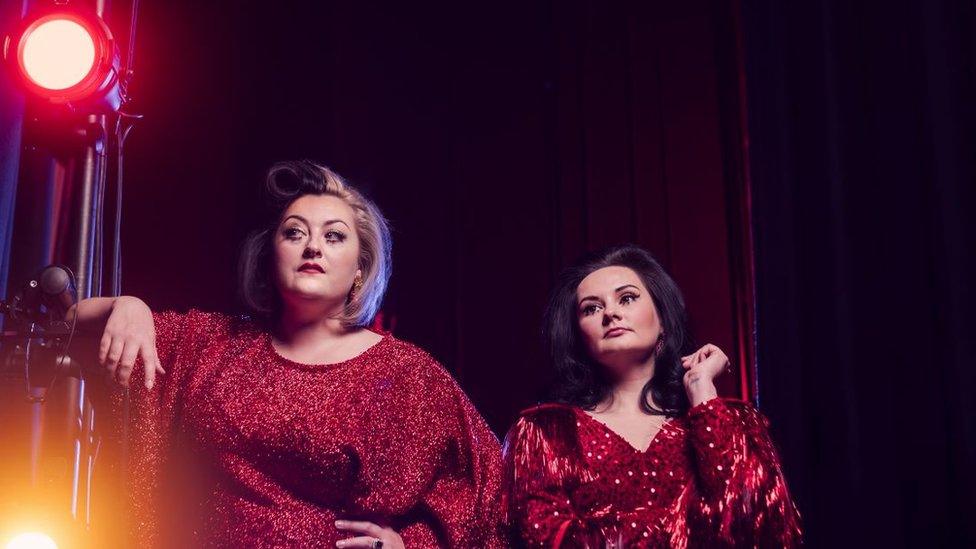
Kiri Pritchard-Mclean (left) and Rachel Fairburn (right) share an interest in all things strange and macabre
The appetite for true crime seems insatiable, with a near constant flow of documentaries, podcasts and dramatisations about real-life killings.
But this is nothing new, insists Fairburn.
"What's the worst thing a human being can do? It's murder, unless you're Ed Sheeran and that's bring out an album," she joked
"For centuries people have been interested in true crime - people used to go to public executions."
So which serial killers do they find most fascinating?
For Fairburn, who grew up in Harpurhey, an inner-city suburb of Manchester, it is crimes that were committed close to home.
Moors murderers Ian Brady and Myra Hindley tortured, sexually assaulted and murdered five young people between 1963 and 1965, burying four of them on Saddleworth Moor.
To her, the victim's families were more than people you read about in newspapers.
"I remember being in Manchester city centre a couple of times and seeing Winnie Johnson, [victim] Keith Bennett's mother, just doing her shopping," she said.
"My grandma was actually in hospital in the next bed to [victim] Lesley Ann Downey's mother at one point."
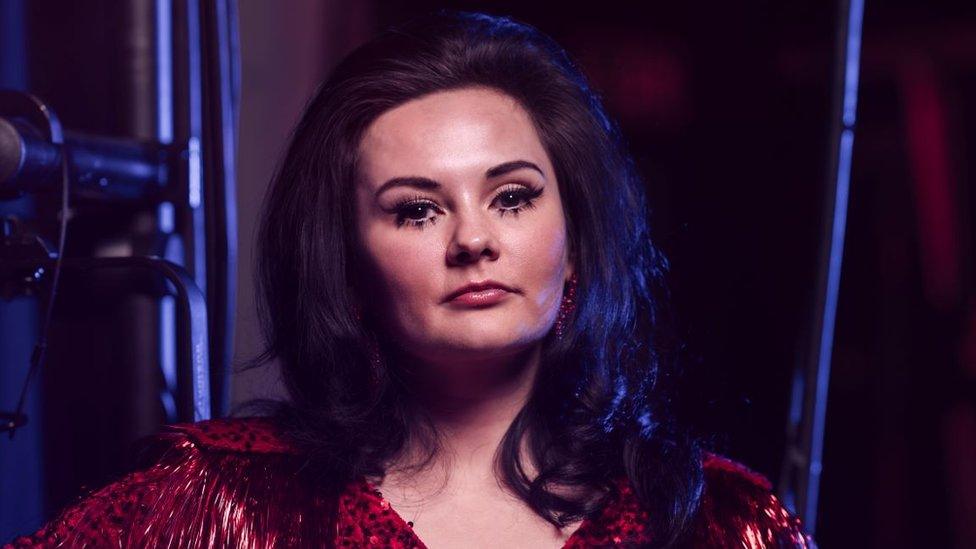
Rachel Fairburn grew up fascinated by the Moors Murders
She also remembers following the case of Fred and Rose West, who tortured, raped and murdered an unknown number of women over a 20-year period in Gloucester between 1967 and 1987.
In Fairburn's school diary, next to an entry about the recent death of actor John Candy on 7 March 1994 she wrote: "Six bodies have been found in a man's house in Gloucestershire. Police have found a couple in the chimney. They're going to search for more in his old houses."
Now, she says: "I remember being fascinated and it was on the news constantly."
She finds US serial killer Dennis Rader, external, who murdered at least 10 people in Kansas between 1974 and 1991, particularly terrifying.
"It's the thought of somebody stalking you, being in your home and the fact that he had this normal family life," she said.
For Pritchard-McLean the case of Jeffrey Dahmer is particularly interesting "because it tells you about the world that they're living in".
Known as the Milwaukee Cannibal, he murdered and dismembered 17 young men and boys in Wisconsin, US, between 1978 and 1991.
"If he wasn't killing gay guys, if he was killing rich, straight men he would have been caught after one or two murders - he has got a much higher body count than that because ultimately, if you're part of a marginalised group then the world lets you die," she said.
Are there any serial killers they would not want to talk about on their podcast?
For live shows they avoid crimes committed in the area.
"Your worst nightmare is that someone comes along and we're sat there talking about their relative," said Pritchard-McLean.
Others just do not sit right, they said, such as Levi Bellfield who murdered Milly Dowler in 2002, Marsha McDonnell in 2003 and Amelie Delagrange in 2004 or Soham Killer Ian Huntley who killed 10-year-olds Holly Wells and Jessica Chapman in 2002.
"There's just ones where we're like, 'no, I just don't know that we have got anything to add to this'," she said.
"We've never disagreed on anything like that."
In March the pair will be celebrating 10 years of their podcast with a live UK tour.
With the friends frequently veering off topic and discussing more personal matters, much of the ups and downs of their lives over that time have been captured on the podcast.
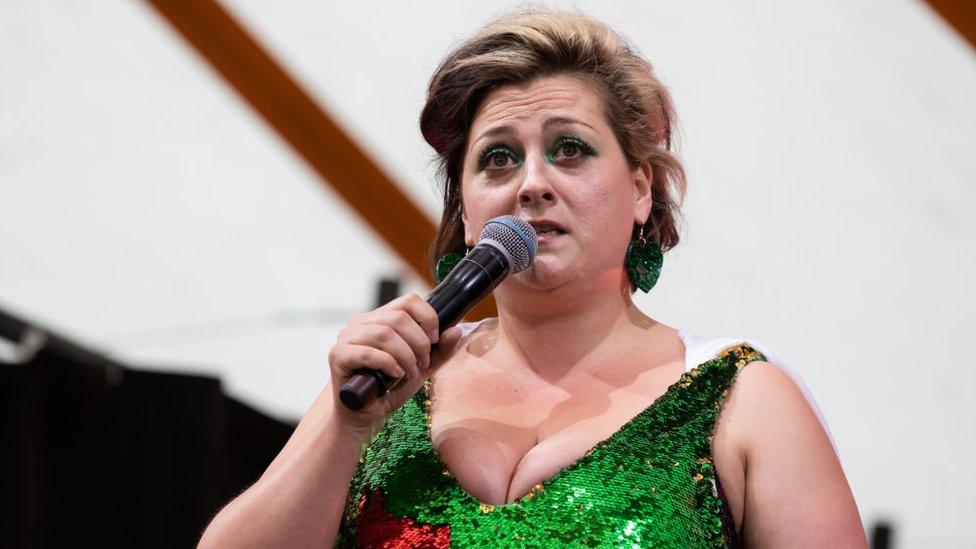
Kiri Pritchard-Mclean grew up on Anglesey
"There's the decade of our relationship, partners that we had at the time, things that have happened to us," said Fairburn.
"There's a documentation of a pandemic in there. I lost my dad last month and it was one of the first things I mentioned on the latest podcast we recorded," added Pritchard-McLean.
"We are just friends chatting."
It is also a chance to reflect on how far they've come in an industry where both have experienced and seen sexism and misogyny.
"When [the podcast] started doing well everyone treated it like it was baby's day out, and we had stumbled into something good," said Pritchard-McLean.
"There's so many men would go 'you're really good you know' and I'd be like 'yeah.... I'm good at my job and I've had to be better to get the same chances you've had'."
She credits other women, such as Sarah Millican, Sara Pascoe and Katherine Ryan for making room for more women in the industry.
She said: "As long as we've got more women taking up space, I'm going to see it as a win."

THE CROSSBOW KILLER: Investigating the case of a Welsh murder stranger than fiction
DEATH OF A CODEBREAKER: The man found naked & dead inside a bag

Related topics
- Published11 November 2023
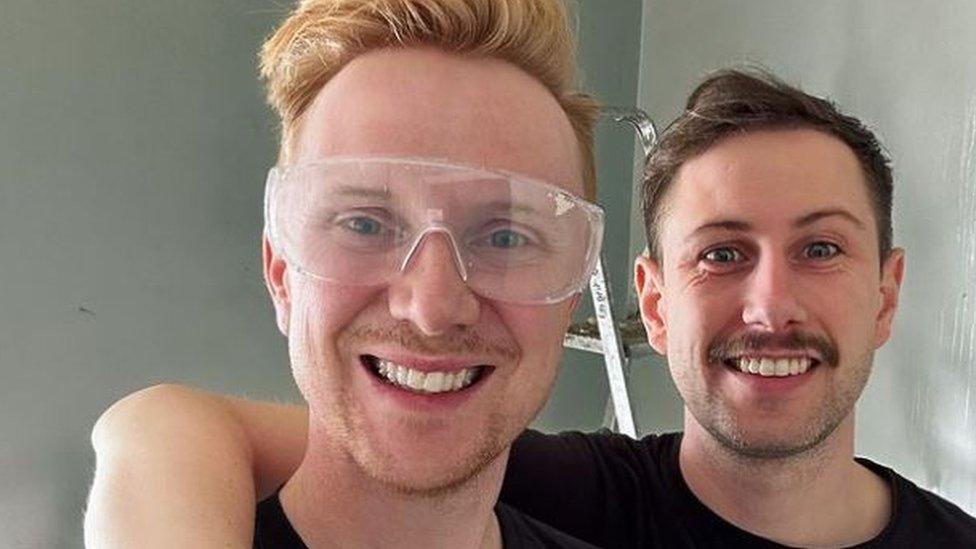
- Published28 October 2023
